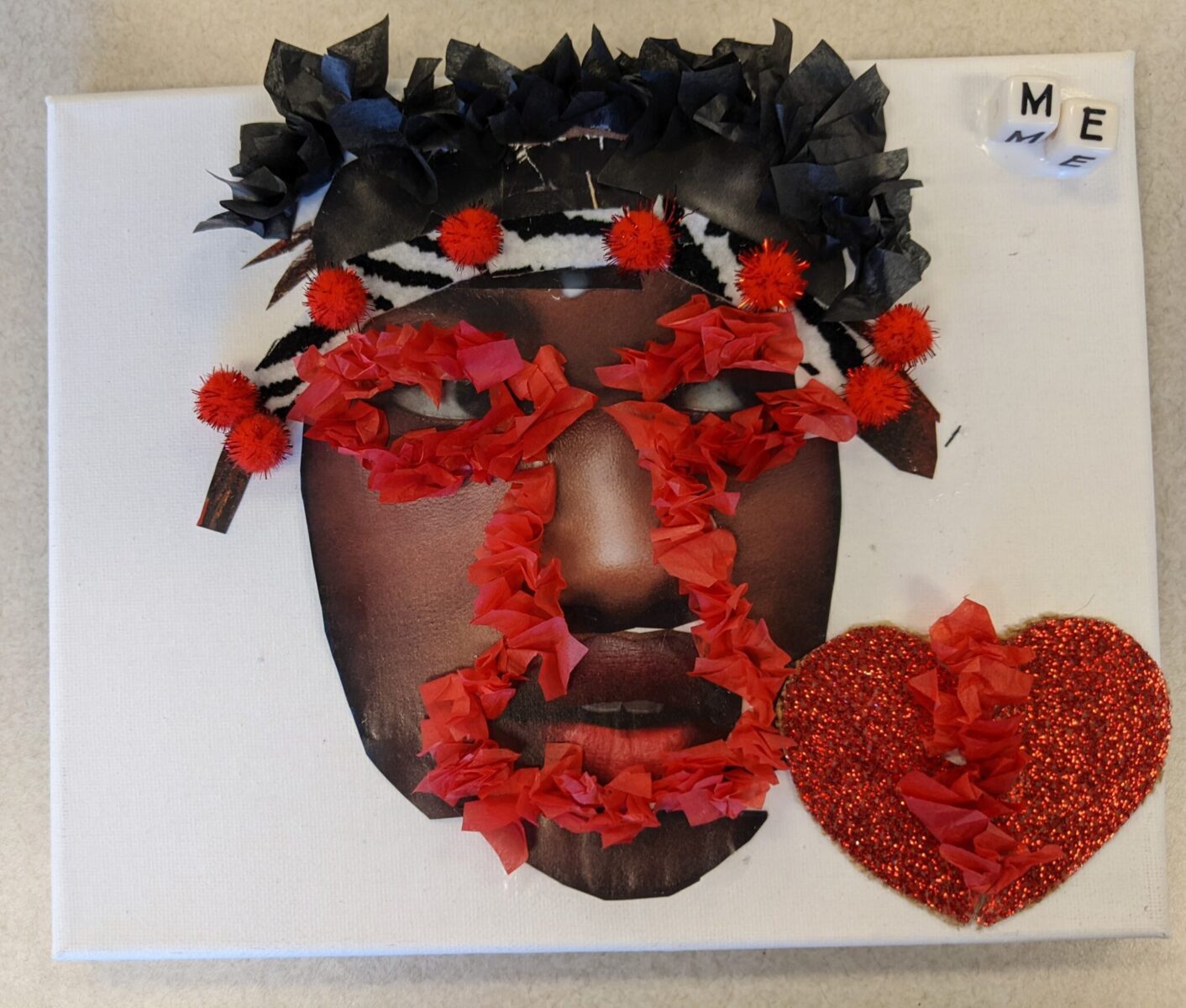Our current exhibit is titled DEGENERATE! Hitler’s War on Modern Art (open now through August 20th). It documents the cultural assault waged against all things liberal and democratic that created a petri dish of intolerance, ultranationalism, xenophobia, racism, and antisemitism within German society.
In mid-March we ran three day-long learning experiences funded by the Wisconsin Arts Board with help from the National Endowment for the Arts. I created the workshop for students from Milwaukee-area schools to engage with this history in new and interesting ways. The workshop was titled ‘Degenerate Art: Democratic Art’, which can be nicely simplified as DA:DA. For those of who know the history of Hitler’s War on Modern Art, Dada was a movement that caused the fascists a great deal of ire because it was intentionally anti-war, discursive, and subjective. Furthermore, Dada was renowned for its use of collage and photomontage, which is the technique that students learned about and through this workshop as it progressed.
The day started out with a tour of the exhibit, in which myself and the docents highlighted how the pieces in our exhibit would have been seen by the Nazi regime and why the assessment of art and artists as ‘degenerate’ is stupendously problematic. We also addressed the way that Nazism blurred the lines between the artist and their art. When a person was deemed ‘un-German’, their work was also castigated; and when artwork was labeled as ‘degenerate’, the artist was damned in the same category. The fuzzy lines between artists and their art created a toxic conflation that paved a smooth path for Nazi arguments that favored euthanasia.
After their guided examination of the art and didactic materials in our exhibit, students completed an incredible collage workshop with the great Della Wells. She helped students see that collage was and remains a form that inherently undermines hierarchical control. The creative process empowers people to be responsive to content that they encounter, rather than simply receive it passively. It is a form that demands playfulness, dialogue and inclusivity. Students quickly recognized why Nazism would have been unsympathetic to collage:
‘it isn’t straightforward and easy to understand; someone who sees it is drawn to make their own interpretation of the artwork’
‘it doesn’t represent the world through a lens of objectivity; instead it is expressionist and personal’
‘it’s messy and vague rather than binary’
These answers, provided by 7th and 8th graders, showed the power of combining history and the arts. By engaging in a process that was itself seen as a threat to totalitarianism, students were able to quickly and meaningfully grasp the concepts that might have only been minimally rendered through another form of learning.
After their experience with physical collage, Jeff Zimpel from Arts@Large, ran a workshop on digital collage that empowered students to use technologies to respond to the vast amount of content that is hurled at them on a daily basis. With the simple power of a projector screen, students could flip back and forth between creating art in the digital world and the physical world, engendering a conversation that invited others to contribute their artistic voice. Working collaboratively is a requirement of this technique, whether through the overlapping of different ideas by a single artist, or–as was the case here–through the contribution of multiple artists to a single composition.
By learning across modalities, the students were given ample opportunity to sit with the message of DEGENERATE! And by working creatively, in community with one another, the experience showcased the potency of conversation. Every day started with the trademark quiet and timidity of a new group exploring a new space; and every day ended with the glorious sound of ‘the creative hum’, as a collection of young minds engaged actively with the subject at hand. As an educator, it was inspiring to watch the transformation of young people into what Hitler would have deemed ‘degenerates’.

